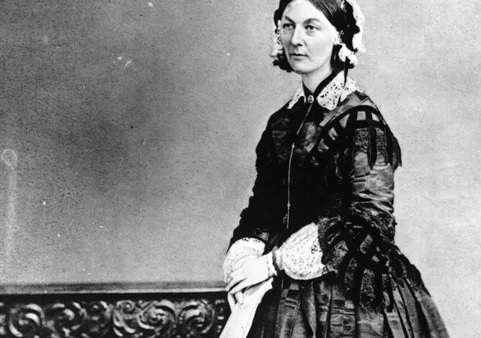Contribution by Kent alumna Dr Rachel Black (SSPSSR 2011)
Chief Executive at the Orpheus Centre
12 May 2020 marks 200 years since the birth of Florence Nightingale, pioneering nurse, researcher and social reformer.
Florence Nightingale combined phenomenal caring skills with brilliant intelligence. She was a fan of data and used it to change practices and improve people’s health outcomes. During the Crimean War, many more men died of infection than of war wounds. Florence Nightingale radically reduced mortality rates by delivering outstanding infection control and nursing care to those people.
The Covid 19 pandemic is also being managed in large part through rigorous infection prevention and control to prevent people needing to be hospitalised. People are washing their hands frequently, staying at home, practicing social distancing, and self-isolating if required. We have all radically changed our lives to accommodate such changes.
I have been a nurse for my whole adult life, starting my training when I was just 18 years old. In some ways my role as CEO at Orpheus has felt like the furthest move from clinical practice I have ever made. Not anymore! With Covid 19, I am absorbed in physical and mental health risk assessments, designing and implementing practices to control and prevent infection, reviewing presentation of symptoms and deciding on courses of action. All of my accumulated nursing knowledge and skills are being utilised.
I hold the following words of Florence Nightingale in esteem:
“Let whoever is in charge keep this simple question in her head:
not, how can I always do this right thing myself, but how can I provide for this right thing to be always done?”
(Florence Nightingale, Notes on Nursing: What It Is, and What It Is Not).
In keeping our services running, I am always aiming for the Orpheus Centre and all our workforce, volunteer and paid, to do the right thing: to keep our students safe and well above all, to maintain their care, to promote their independence, and to keep them learning. I am of course prepared to step in anywhere, but I need to ensure the workforce and families have the resources and support to play their parts excellently. It is a tribute to our wonderful donors and funders that we continue to have those resources available and we are forever grateful.
The Domiciliary Care Team at Orpheus are not registered nurses, but they do nursing care. They develop supportive and trusting relationships, they enable students to feel confident when they are most vulnerable, and, in partnership with other professionals, they tend to the needs of students when they are at physical or mental low ebbs. Like many care services, the range and complexity of skills they are expected to practice is ever growing and increasingly complex, particularly at this time. Our Domiciliary Care Team is brilliant. In the world’s hour of need, it is the traditionally under-valued, customer-facing job roles which have kept people safe and even alive. During the Covid-19 lock-down we clap for carers on Thursdays and put up our rainbow posters. It should not have taken a pandemic to see how the world needs these people. We must not lose sight of their importance in the months and years to come.
Florence Nightingale also said:
“Were there none who were discontented with what they have, the world would never reach anything better.”
Faced with the unknown of a pandemic, all the Orpheus Centre students, parents, volunteers and staff have made tremendous changes to their personal and working lives to make the world better by keep themselves and each other safe. People have been amazingly flexible and good-natured in really trying circumstances. They find themselves undertaking tasks they do not usually do and, frankly, may prefer not to do. Above all, people have been hugely kind and so very patient.
I think Florence Nightingale would look on the Orpheus Centre with approval. She would see a large team of students, parents, volunteers and staff who are all working for the good of the students and each other. She would see a team of staff who are always empathising, prioritising the wellbeing of students and parents, looking out for each other’s needs, and, essentially, keeping the working space and their hands so very clean.
I am in awe of Florence, but I am also in awe of the Orpheus Family and so very proud to be in it.
Reading:
Nightingale, F. (1992). Notes on nursing: What it is, and what it is not. Lippincott Williams & Wilkins.
Orpheus (2020) About us https://www.orpheus.org.uk/about-us

